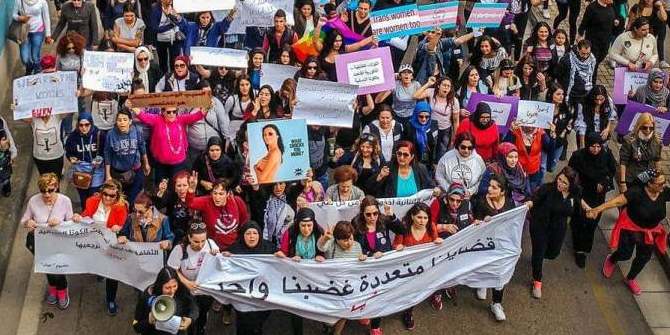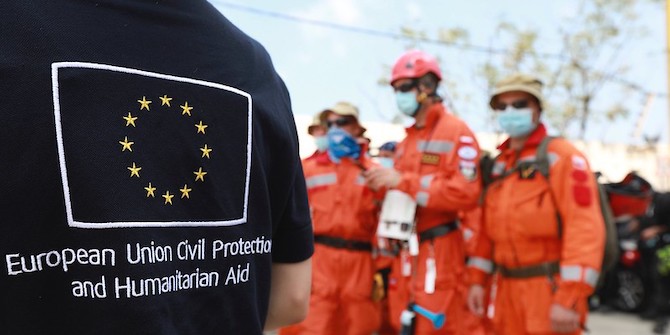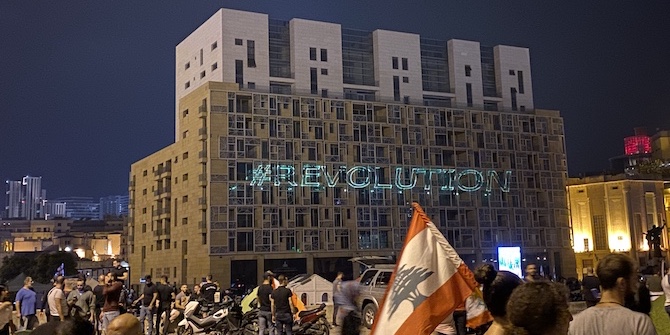by Deen S. Sharp
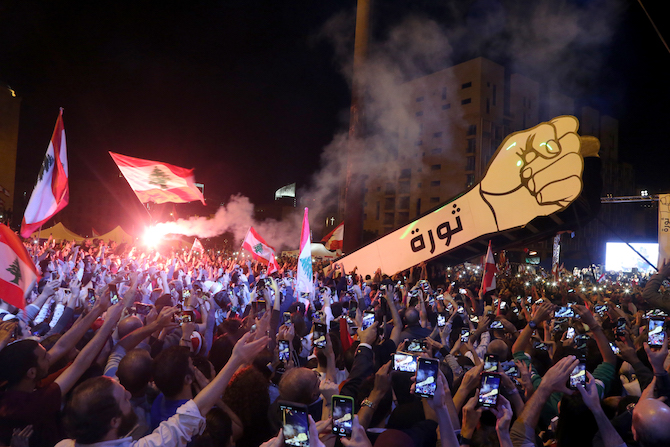
In July 2023, the co-Principal Investigators of the Lebanon Unsettled project, Deen Sharp and May Farhat launched the ‘Lebanon Unsettled’ website during a series of workshops and talks in Lebanon. The website focuses on the uprisings of 17 October 2019, which consisted of a three-month long revolt. This protest was remarkable for its duration, the political unity and coalitions, the sheer number of protesters and its geographical reach – with demonstrations erupting not only in Beirut, but across the whole nation.
The website consists, in part, of outputs from a week-long workshop held in July 2022 at the Holy Spirit University of Kaslik (USEK) that brought together graduate students, activists, and scholars, to examine the socio-spatial implications of the protest movement. USEK was selected as the partner university for the ‘Lebanon Unsettled’ project due to its location between Beirut and Tripoli. The students at USEK mainly come from the coastal urban areas of Jounieh, Jbeil, and Batroun, as well as from the towns and villages of Mount Lebanon. One aim of the Lebanon Unsettled project was to explore the October 2019 protests from the spaces ‘beyond the square‘ and in particular the revolts that erupted along the highway between Beirut and Tripoli, in Jel El-Deeb and Zouq.
The students at the workshop produced two central outputs, one induvial reflection of their personal engagement with October 2019 (‘Intimate Legacies’) and a collective map (‘Performative Mapping’). On the website, these mappings are further contextualised and situated in their broader context.

The second element of the website is a series of archives on the historical context of the protest, including videos, images, timelines, and selected bibliographies. The website begins this timeline with the ammiyyat a series of peasant revolts between 1821 and 1861. It then moves through five different historicised periods – the French Mandate, the Marine Landing, the Ghandour Factory, the Independence Intifada, and the Arab uprisings and You Stink – up until the October 2019 revolt. The final component of the website is a series of short videos with scholars, activists, and the student participants on the practice of archiving, the historical context of the revolt, and the geographies of 2019.
The legacy of the October 2019 protests is bitterly contested and the memories of this mass revolt remain painful for many. At the launch event of the ‘Lebanon Unsettled’ website at the American University of Beirut (AUB), Issam Fares Institute for Public Policy and International Affairs (IFI), Sarah Lilly Yassine, played her Soundscape of the 2019 protest. In reaction to the recordings, AUB Professor, Mona Harb, detailed her emotional response on hearing the chants from the revolt and asked, ‘Are we ready to discuss this [the October 2019 protests]?’ But at the launch event we debated the legacy and meaning of the protests and how to archive them, as well as AUB’s own efforts at archiving this moment.
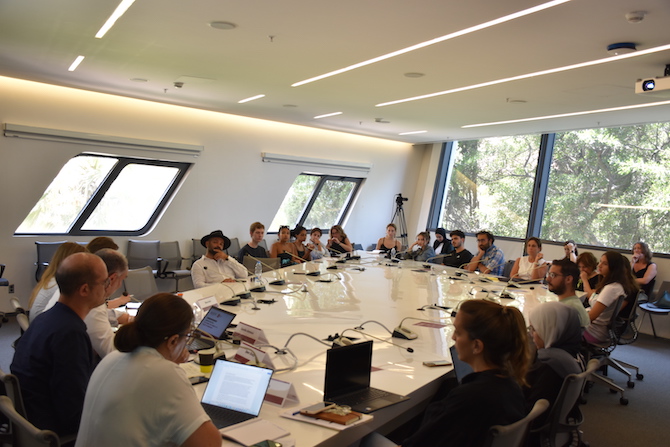
The meaning of the October 2019 uprising continues to be played out in Lebanon and the debate is highly contentious. Some continue to see this revolt as a searing ray of hope in an otherwise desolate landscape of political despair. Others have argued that this protest is responsible for the (continued) economic and political meltdown in the country. Indeed, the controversy surrounding the 2019 protests meant that several prominent academic institutions refused to host our launch event for the ‘Lebanon Unsettled’ website. The mere mention of October 2019 – let alone the archiving of it – is it seems in contemporary Lebanese politics controversial.
However, there are institutions, like AUB, and NGOs in Lebanon that continue to push forward the work of analysing, documenting, and thinking through the meaning of October 2019. UMAM Documentation and Research was the location for the second launch event of the ‘Lebanon Unsettled’ website. At UMAM, we linked the launch of our website to their own efforts to archive the 2019 moment. We placed the types of archiving that was created through the website into conversation with the materials that UMAM has collected from the revolt.
The debate on the meaning of the mass revolts of 2019 is far from settled, leaving Lebanon unsettled. The country is once again convulsed in a political crisis – there is still no president since Aoun’s term ended in October 2022 and the municipal elections have been delayed. The Lebanese Lira has continued its devaluation and the economic crisis has left 80 percent of the population living below the poverty line. None of the social, economic, and political pressures that resulted in the eruption of rage in October 2019 have been resolved. It will surely not be too long until the histories of 2019, and of contentious politics in Lebanon more broadly, once again leap into the present.
This piece is part of the research project ‘Lebanon Unsettled’ conducted in collaboration with the Holy Spirit University of Kaslik (USEK) and part of the LSE Middle East Centre Academic Collaboration with Arab Universities Programme, funded by the Emirates Foundation. Deen Sharp is the principle investigator on this project with May Farhat.
[To read more on this and everything Middle East, the LSE Middle East Centre Library is now open for browsing and borrowing for LSE students and staff. For more information, please visit the MEC Library page.]



